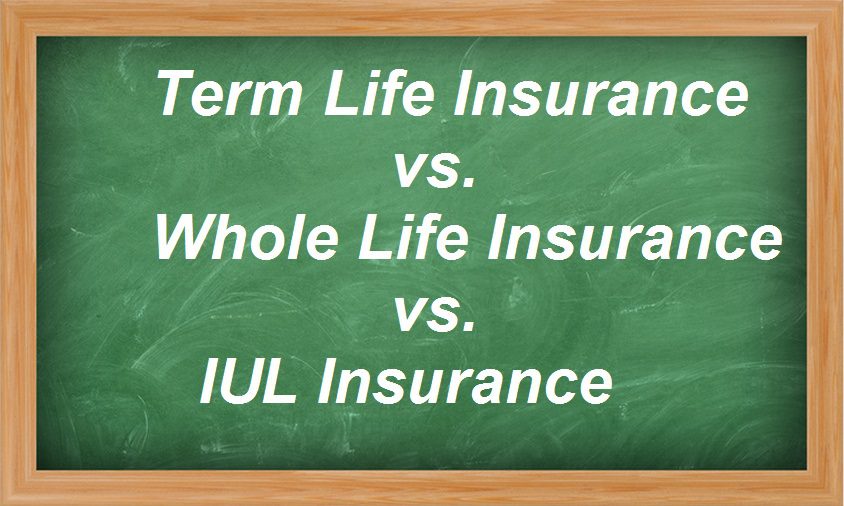All Categories
Featured
Table of Contents
Do they compare the IUL to something like the Vanguard Total Amount Supply Market Fund Admiral Shares with no load, an expense proportion (EMERGENCY ROOM) of 5 basis points, a turn over proportion of 4.3%, and a remarkable tax-efficient record of circulations? No, they contrast it to some awful proactively managed fund with an 8% lots, a 2% ER, an 80% turn over proportion, and a terrible document of temporary funding gain distributions.
Mutual funds commonly make annual taxed circulations to fund proprietors, even when the worth of their fund has dropped in value. Shared funds not only need revenue coverage (and the resulting yearly tax) when the shared fund is going up in value, yet can also impose earnings taxes in a year when the fund has decreased in worth.
You can tax-manage the fund, collecting losses and gains in order to reduce taxable distributions to the financiers, however that isn't somehow going to alter the reported return of the fund. The ownership of mutual funds might need the common fund owner to pay projected tax obligations (top universal life insurance companies).

IULs are easy to position so that, at the owner's death, the beneficiary is exempt to either income or estate taxes. The very same tax reduction strategies do not function virtually also with shared funds. There are countless, often pricey, tax obligation traps associated with the timed trading of common fund shares, catches that do not apply to indexed life insurance policy.
Chances aren't extremely high that you're mosting likely to go through the AMT because of your common fund circulations if you aren't without them. The remainder of this one is half-truths at ideal. For example, while it is real that there is no earnings tax because of your heirs when they inherit the profits of your IUL plan, it is additionally true that there is no income tax obligation because of your successors when they acquire a common fund in a taxed account from you.
Universal Life University
The federal inheritance tax exception limit is over $10 Million for a pair, and expanding yearly with inflation. It's a non-issue for the vast bulk of doctors, a lot less the rest of America. There are far better methods to avoid estate tax obligation problems than acquiring investments with low returns. Shared funds may cause revenue tax of Social Security advantages.

The development within the IUL is tax-deferred and may be taken as free of tax earnings using loans. The plan owner (vs. the shared fund manager) is in control of his/her reportable earnings, hence allowing them to reduce or perhaps get rid of the tax of their Social Safety and security advantages. This one is terrific.
Right here's an additional very little problem. It holds true if you purchase a mutual fund for claim $10 per share right before the circulation date, and it disperses a $0.50 circulation, you are then going to owe tax obligations (possibly 7-10 cents per share) although that you haven't yet had any kind of gains.
Yet in the long run, it's actually concerning the after-tax return, not just how much you pay in taxes. You are going to pay even more in tax obligations by utilizing a taxable account than if you purchase life insurance policy. You're additionally possibly going to have more cash after paying those tax obligations. The record-keeping demands for owning shared funds are significantly more complex.
With an IUL, one's documents are maintained by the insurance company, copies of yearly declarations are sent by mail to the proprietor, and distributions (if any type of) are totaled and reported at year end. This set is likewise type of silly. Obviously you ought to maintain your tax documents in instance of an audit.
Index Insurance Definition
All you have to do is push the paper into your tax folder when it appears in the mail. Rarely a factor to buy life insurance coverage. It resembles this man has never ever bought a taxed account or something. Common funds are frequently part of a decedent's probated estate.
Additionally, they undergo the hold-ups and expenditures of probate. The proceeds of the IUL plan, on the other hand, is always a non-probate circulation that passes beyond probate straight to one's named recipients, and is for that reason not subject to one's posthumous lenders, undesirable public disclosure, or comparable delays and costs.
We covered this under # 7, however just to summarize, if you have a taxable common fund account, you have to put it in a revocable trust (or even simpler, make use of the Transfer on Fatality designation) to avoid probate. Medicaid incompetency and lifetime revenue. An IUL can give their owners with a stream of earnings for their whole lifetime, despite exactly how lengthy they live.

This is beneficial when organizing one's events, and converting possessions to income prior to an assisted living home confinement. Common funds can not be transformed in a comparable manner, and are often considered countable Medicaid assets. This is another foolish one promoting that poor people (you know, the ones who need Medicaid, a government program for the inadequate, to spend for their assisted living home) ought to make use of IUL instead of mutual funds.
Accumulation At Interest Option
And life insurance coverage looks dreadful when contrasted rather versus a retired life account. Second, people who have cash to purchase IUL over and beyond their pension are mosting likely to need to be awful at managing cash in order to ever before receive Medicaid to pay for their nursing home costs.
Chronic and terminal disease rider. All plans will certainly permit a proprietor's very easy accessibility to cash from their plan, often forgoing any abandonment penalties when such people suffer a severe ailment, need at-home care, or end up being confined to a nursing home. Shared funds do not give a similar waiver when contingent deferred sales charges still relate to a shared fund account whose owner requires to sell some shares to fund the prices of such a stay.
Maximum Funded Tax Advantaged Insurance Contracts
Yet you get to pay even more for that benefit (biker) with an insurance coverage. What a large amount! Indexed universal life insurance policy gives survivor benefit to the beneficiaries of the IUL owners, and neither the proprietor neither the recipient can ever lose money as a result of a down market. Common funds provide no such assurances or survivor benefit of any kind of kind.
I certainly don't need one after I reach economic self-reliance. Do I want one? On standard, a purchaser of life insurance pays for the real cost of the life insurance policy benefit, plus the expenses of the policy, plus the earnings of the insurance company.
Top Universal Life Insurance Companies
I'm not entirely certain why Mr. Morais included the entire "you can't lose cash" once again below as it was covered rather well in # 1. He just desired to duplicate the most effective selling point for these things I suppose. Once more, you do not shed small dollars, but you can lose real bucks, as well as face severe opportunity expense because of reduced returns.

An indexed global life insurance coverage plan proprietor might trade their policy for a totally various policy without causing earnings taxes. A common fund proprietor can stagnate funds from one mutual fund company to one more without offering his shares at the former (hence setting off a taxed occasion), and redeeming brand-new shares at the last, typically based on sales costs at both.
While it holds true that you can trade one insurance coverage plan for another, the factor that individuals do this is that the very first one is such a terrible plan that even after purchasing a new one and experiencing the early, adverse return years, you'll still appear in advance. If they were offered the appropriate policy the very first time, they shouldn't have any need to ever before exchange it and go through the early, negative return years again.
Latest Posts
Universal Life Insurance Company Ratings
Side Fund Life Insurance
Instant Universal Life Insurance Quote